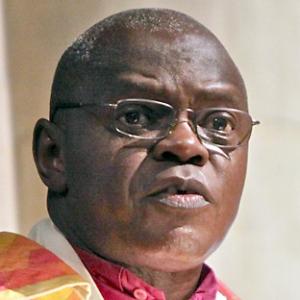
A Spanish archbishop, who was part of the Vatican-led investigation of the Legionaries of Christ, will be the apostolic visitor of the congregation's lay movement, Regnum Christi.
Archbishop Ricardo Blazquez of Valladolid, Spain, is one of a number of appointees named recently to help the papal delegate, Archbishop Velasio De Paolis, in his task of governing the Legionaries and helping reform the order.
The four advisers who will help Archbishop De Paolis are Bishop Brian Farrell, a member of the Legionaries and secretary of the Pontifical Council for Promoting Christian Unity, and three canon lawyers: Jesuit Father Gianfranco Ghirlanda, Sacred Heart Father Agostino Montan, and Msgr. Mario Marchesi, according to media reports.
The Vatican confirmed the list of appointees on Sept. 30.
The papal delegate, Italian Archbishop De Paolis, has broad powers of authority over the Legionaries of Christ as part of a major Vatican-led reform of the order.
Archbishop De Paolis will lead a commission in charge of revising the order's constitutions, and all members of the order have been encouraged to take an active part in the reform.
The role the advisers will play is flexible. According to the Vatican decree published in July detailing the papal delegate's role, "the delegate will have four personal advisers to aid him in carrying out his work, according to the circumstances and possibilities. These aides may be assigned specific tasks, particularly visits 'ad referendum.' With their help, the papal delegate will identify, discuss, and clarify the principal topics as they arise during the process he is called to lead."
Archbishop De Paolis, who will coordinate the visitation of the Legionaries' Regnum Christi movement, was in charge of naming the movement's visitor, Archbishop Blazquez.
Archbishop Blazquez, 68, served as president of the Spanish bishops' conference from 2005 to 2008 and headed the bishops' commission for the doctrine of the faith from 1993 to 2003.
The former professor of theology was one of five bishops appointed by Pope Benedict XVI in 2009 to conduct a visitation of the Legionaries of Christ. He led the investigation of the congregation's centers and institutions in Europe, excluding Italy.
Among the four advisers to Archbishop DePaolis is Bishop Farrell, 66, who was born in Dublin, and was ordained a priest for the Legionaries in 1969. He served from 1970 to 1976 as director of the Legionaries' U.S. novitiate in Orange, Conn.
Italian Msgr. Marchesi is the vicar-general of the Diocese of Cremona and has taught canon law at the Legionaries' Pontifical Regina Apostolorum University in Rome.
Father Montan, a member of the Congregation of the Sacred Heart of Jesus, is episcopal vicar of the Rome Diocese's office for consecrated life and a professor of canon law at the Pontifical Lateran University in Rome.
Father Ghirlanda is a canon lawyer and the former rector of the Pontifical Gregorian University.
The papal delegate and his four advisers have had the chance to work together before in their roles as advisers to several important Vatican agencies.
Archbishop De Paolis, Father Ghirlanda and Father Montan are consultors to the Vatican Congregation for Institutes of Consecrated Life and Societies of Apostolic Life.
Msgr. Marchesi and Fathers Ghirlanda and Montan serve as consultors to the Vatican Congregation for the Evangelization of Peoples.
Archbishop De Paolis and Father Ghirlanda also are members of the Vatican's Supreme Court of the Apostolic Signature and the Pontifical Council Legislative for Texts.
The Vatican-led investigation into the Legionaries and Regnum Christi came in the wake of revelations that the Legionaries' founder, the late Father Marcial Maciel Degollado, had fathered children and sexually abused seminarians.
His "most grave and objectively immoral conduct" called for "a path of profound revision" in the order, the Vatican said. Father Maciel's "true crimes" reflected "a life devoid of scruples and of authentic religious sentiment," it said.
SIC: CNS/INT'L

























